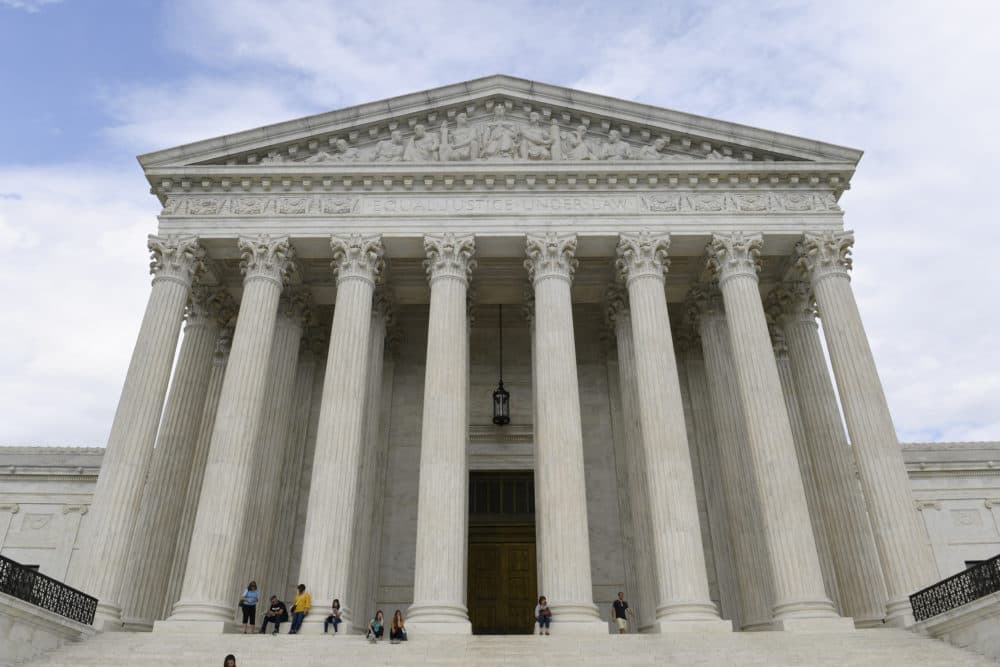Advertisement
SCOTUS Won’t Hear Mass. Au Pair Case

The U.S. Supreme Court on Monday declined to take up a Massachusetts-based case addressing pay for au pairs, a topic that also remains before state lawmakers as the legislative session winds down.
The court included the case, Capron v. Office of the Attorney General of Massachusetts, on a list of those it would not review, leaving the decision of a lower court in place. The court's list notes that Justice Stephen Breyer "took no part in the consideration or decision of this petition."
The U.S. Court of Appeals for the First Circuit on Dec. 2, 2019 affirmed a lower court's dismissal of a lawsuit against Attorney General Maura Healey, filed by Cultural Care Au Pair and two people whose families have hosted au pairs. The suit argued that federal law relating to au pairs preempts the state's wage and hour laws, but the court disagreed and found that the Massachusetts wage, overtime and Domestic Workers Bill of Rights laws apply to au pairs.
The au pair program, administered by the State Department, allows young adults from other countries to come to the United States under a special visa to continue their studies while providing a host family with live-in child care.
The Massachusetts minimum wage of $12.75 an hour is higher than the federal minimum wage, and the Domestic Workers Bill of Rights includes provisions around rest periods and payroll recordkeeping requirements for employers, among other measures.
"In Massachusetts, our minimum wage, overtime, and Domestic Worker Bill of Rights laws protect workers, including au pairs, regardless of their national origin or immigration status," Healey said in a statement. "We are pleased that Cultural Care's challenge to those laws has now been rejected by the federal courts at every level."
The December ruling prompted lawmakers to file a handful of bills, in some cases aimed at easing burdens on host families who had been complying with federal pay rules and may have been surprised to learn of other legal obligations.
The Labor and Workforce Development Committee in late May solicited written testimony on four au pair bills — two filed by Boston Rep. Michael Moran and one each from Reps. Paul McMurtry of Dedham and Michelle Ciccolo of Lexington.
Ciccolo's bill (H 4567) proposed to temporarily exempt au pairs from provisions of the Domestic Workers Bill of Rights until July 1, giving host families what she has described as a grace period. McMurtry's bill (H 4565) would allow employers to deduct lodging, food and beverage costs from an au pair's pay in an amount up to 40 percent of the weekly wages owed.
One Moran bill (H 4563) would create a commission to examine the impact of state policies and the Capron decision on the au pair exchange program; the other (H 4654) deals with host families that have existing signed agreements with au pair sponsor agencies.
The COVID-19 pandemic disrupted the typical public hearing structure — the State House has been closed to the public since March — so many committees have been collecting testimony by email or holding virtual hearings with video streams.
The Labor Committee, which has been without a House chair since former Rep. Paul Brodeur resigned in November to become mayor of Melrose, on June 2 extended its deadline for reporting out the four au pair bills.
The committee now has until Oct. 27 to decide if its members wish to advance the bill. Under joint House-Senate rules, formal legislative sessions are scheduled to end for this term in July 31, after which recorded roll call votes cannot be taken and any one lawmaker's objection could stop a bill from moving forward.